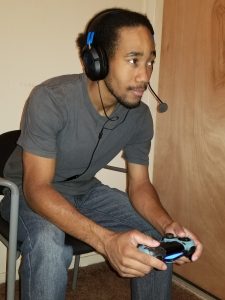
The gaming industry is expanding, and millennials are the driving force.
What used to be considered a waste of time and quarters is now a full-blown industry. There is a such a thing as a professional gamer now. Some of them are celebrities on YouTube as they livestream their games. Tournaments can be found on television.
And gaming can even help raise funds for your favorite charity.
St. Jude Childrens Research Hospital has a program called St. Jude PLAY LIVE, where gaming broadcasters with online handles like “DrLupo” and “iamBrandon” gather in Memphis to support the annual St. Jude PLAY LIVE Summit.
“We’re fortunate to have the support of the gaming community,” said Melanee Hancock, chief digital and innovation officer at ALSAC. “People can use their passion for gaming to change the world.”
According to Nielsen.com, 71 percent of millennial gamers watch gaming content on YouTube and Twitch, another streaming platform. Streamers bring recognition to the gaming culture through their popularity. And that popularity translates into dollars. The gaming community has raised $12 million for St. Jude through PLAY LIVE.
Gamers from around the globe participate in St. Jude PLAY LIVE. Memphis has received even more support from the gaming community because BraveDog Games is bringing the BraveDog Video Gaming Innovation Center (BDIC) to Memphis.
Founded back in 2015, BraveDog Games’ mission is creating more diverse video game content. The Lemoyne-Owen College Community Development Corporation (LOC CDC) will construct the center that will capture the legacy of 38126.
The BDIC will feature a premium video game lounge, a state-of-the art esports arena, a student video game development training facility, an entrepreneurial training center and more.
“We as a company are ecstatic about this partnership,” said Dusting Mack, chief executive officer and co-founder of BraveDog Games Innovation Center. “We envision Memphis becoming a catalyst for innovation within the video games and esports industries.”
For millennials born between 1981 and 1996, video games have always existed – from the all-time classic Ms. Pac Man through the recent hysteria of Fortnite, kids who played video games grow into adults who play video games.
Fifty four percent of millennial gamers have a full-time job, according to Nielsen. And a portion of that money goes right back into gaming – consoles, subscriptions and extra gaming content.

Local gamer and millennial Ralphael Burks, is a full-time employee and game broadcaster on Youtube. Gaming has impacted his life since he was a kid and now he’s part of the reason why gaming is expanding.
“I remember playing Mario Kart 64 with my siblings on the Nintendo 64, and from then on my interest in video games grew,” Burks said. “Gaming has allowed me to meet other gamers and find interest in broadcasting games.”
As an active streamer, Burks plays various games, each with a new and unique experience.
“It’s like you’re watching a movie and you’re controlling what the main character does,” he said. “It allows me to play a different role and do things that I couldn’t do in reality.”
Now with the BraveDog Video Gaming Innovation Center coming to Memphis, Burks sees an opportunity for African American youth to participate in something new and educational.
“The BraveDog Innovation Center will help the youth stay off the streets and keep them on the right path.” he said.
And gaming isn’t just for the boys. Latoria Goodman knew she loved video games when she got her own Nintendo 64. She uses her love for video games by streaming on Twitch.tv and for Black Girl Gamers (BGG).
“Black Girl Gamers is a safe and inclusive space for Black women all over the world.” Goodman says.
Black Girl Gamers was founded by Jay-Ann Lopez back in 2015. She created Black Girl Gamers for those who felt invisible by the gaming community. The community now has over 5,000 members.
“It’s a safe space that heightens black women’s voices in gaming and advocates for diversity and inclusion.” Lopez said.
Gaming has even inspired Goodman to write. And if you assume she’ll be writing code, you might be wrong – she wants to tell stories.
“Gaming immerses you in another world.” Goodman says. “I love a game that tells a good story. There’s something really fascinating about that and makes me want to get in the industry of writing for video games.”
(Destiny Royston is a rising sophomore at the University of Memphis and a City of Memphis Summer Youth Employment intern at The New Tri-State Defender.)


